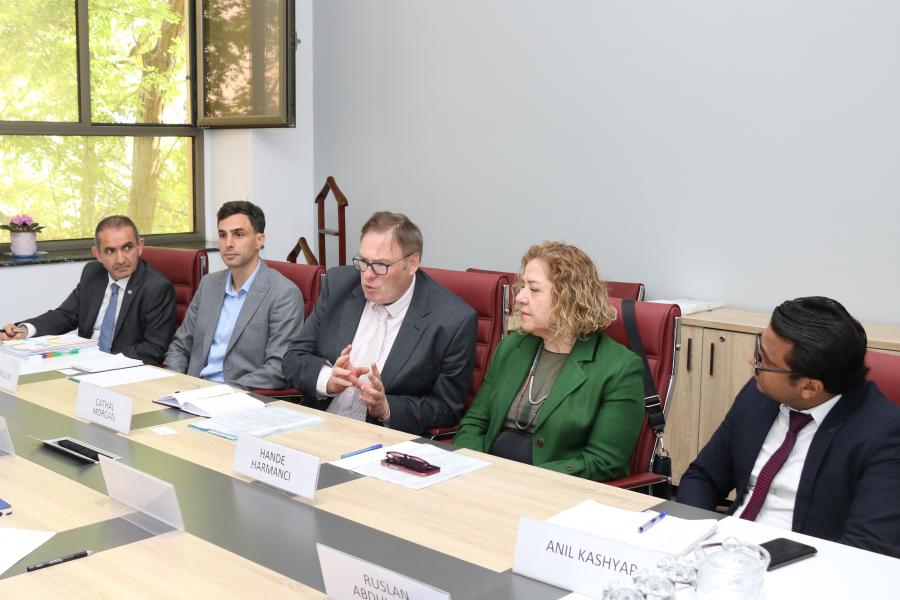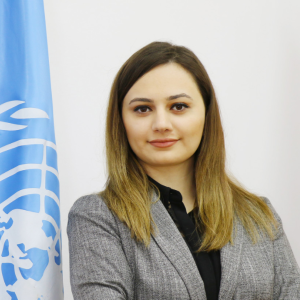WHO conducted a mission on scaling-up access to rehabilitation services and assistive products in Azerbaijan
24 May 2022
- World Health Organization (WHO) had a 4-day mission to Azerbaijan to provide technical support in scaling-up access to Rehabilitation and Assistive Technology (AT) products and services.

The objectives of the mission were to identify next steps following the rapid Assistive Technology Assessment (rATA), assess the current national Rehabilitation & AT supply/system, support further development of the AT roadmap of Azerbaijan and provide technical assistance on integration of Rehabilitation & AT in health and social policy systems.
The mission consisting of Cathal Morgan, Technical Officer on Rehabilitation and Disability Inclusion, Andrea Pupulin, Regional Consultant on Assistive Technologies from WHO/Europe, and Anil Kashyap, Specialist in Policy and Systems from ATscale Global Partnership met with local partners, including the senior officers of the Ministry of Health, Ministry of Labor and Social Protection of Population, Ministry of Education, State Agency on Mandatory Health Insurance, TABIB, Azerbaijan State Academy of Physical Education and Sport, USAID, EU Delegation, UNICEF, NGOs working for the persons with disabilities, and conducted sites visits to the City Policlinic 1 and National Medical Rehabilitation Institute of TABIB, Prosthetic-Orthopedic Production Rehabilitation Center of the State Agency of Medical Social Expertise and Rehabilitation, DOST Agency, and rehabilitation laboratory of the Azerbaijan State Academy of Physical Education and Sport.
WHO implements initiatives on a global scale relating to Rehabilitation in Health systems and in scaling access to Assistive Technology products to enable people improve their quality of life. These vital areas form the basis of a global call for action as set out in Rehabilitation 2030 Call for Action and Global Cooperation on Assistive Technology (GATE) as adopted by the World Health Assembly.
ATscale, the Global Partnership for Assistive Technology was launched with the goal of catalyzing action to reach 500 million more people with life-changing assistive technology by 2030. This cross-sector partnership, seeks to catalyze change, amplify existing work, and coordinate and mobilize global stakeholders with unified strategies to increase the availability of and access to affordable and appropriate AT. This is also vital to developing and strengthening rehabilitation as an integral part of the health and social care system.


